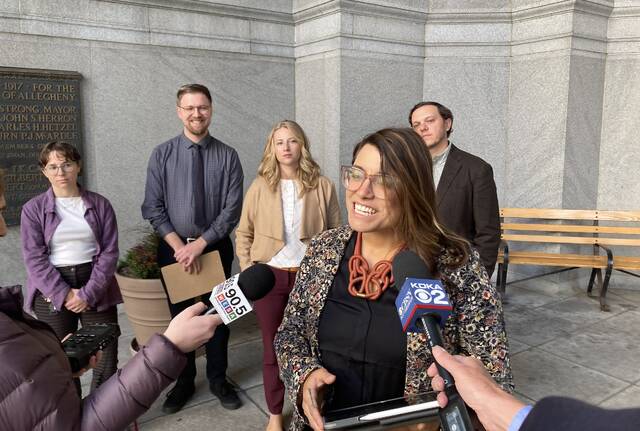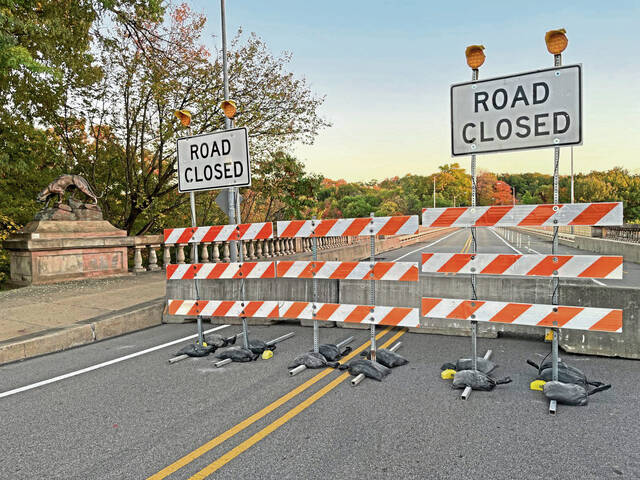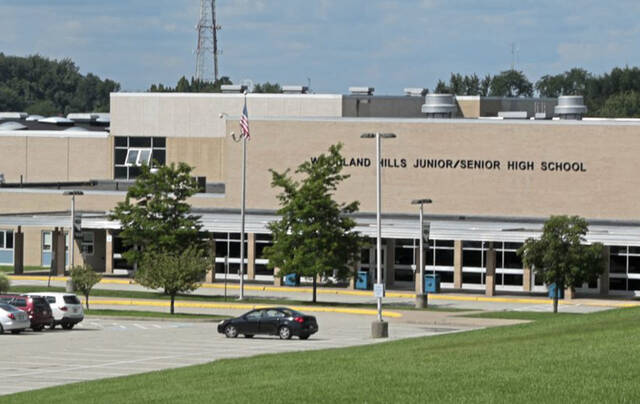Every year, 9 billion gallons of sewage overflow enters Pittsburgh’s three rivers, according to a new report from national group Environment America.
Local officials acknowledge that Alcosan is working on a long-range plan that will greatly reduce that number, but they believe more can be done to ensure the region’s rivers are safer for outdoor recreation.
At a news conference Downtown, PennEnvironment field organizer Dan Brown said he supports Alcosan’s plan to upgrade the regions’ sewage system and reduce annual sewage overflow to 2.7 billion gallons, but he said the goal should be to reduce that further.
“Our rivers are a major source of pride,” said Brown. “One goal is to make sure the rivers are always safe for swimming. We can do better and we must do better.”
Water quality in Pittsburgh’s rivers has dramatically improved over the years, as the economy has moved away from heavy industry. Still, when heavy rains or large snow melts occur, sewage overflows spill into the waterways, creating caution days where water recreation is discouraged.
Brown called sewage overflow a public health threat and said Alcosan should take bigger steps to lower overflows by adding more green infrastructure plans, like permeable roads and rain gardens, to their plan and speed up the process. He said additional federal grant opportunities are available to address stormwater runoff thanks to the $1.2 trillion infrastructure law that passed in 2021.
Alcosan has a $2 billion plan that will construct three tunnels under Pittsburgh’s rivers to direct sewage to its treatment plant on the city’s North Side. The plan will attempt to comply with the U.S. Clean Water Act, and aims to reduce sewage overflows by nearly seven billion gallons annually. It is expected to be finished by 2036.
Alcosan spokesman Joseph Vallarian said the authority is going with a longer implementation plan to save money and keep it affordable for the region. He said there is wiggle room to add onto the Clean Water Plan. After 2036, Alcosan is required to evaluate and plan for additional measures to eliminate the remaining overflows.
State Rep. Sara Innamorato, D-Lawrenceville, said that she grew up swimming in the Allegheny River, but didn’t realize back then that she was risking her health. She praised municipalities like Aspinwall for installing rain gardens and green infrastructure in an alley in the borough and Millvale for preserving Girty’s Woods through a land trust that will help collect stormwater.
“The (Clean Water Plan) is desperately needed and puts us on the right track, but it still could do more,” Innamorato said.
In addition to grants, Brown said local municipalities should consider increasing stormwater usage fees in order to fund more green infrastructure projects. He also encouraged municipalities to build denser housing and offices, because sprawl tends to have more stormwater issues.
Pittsburgh City Councilwoman Erika Strassburger said in a news release that she is looking forward to working on coordinating efforts to shore up local stormwater infrastructure.
Mike Hiller of UpstreamPgh, which advocates for improved stewardship of area waterways, said adding more stormwater mitigation will only become more and more necessary moving forward, as climate change leads to more frequent and more intense storms.
“As climate change increases, so will storm sizes and frequencies, leading to more river pollution and flooding. This is a public health issue that impacts all of our communities,” Hiller said.








